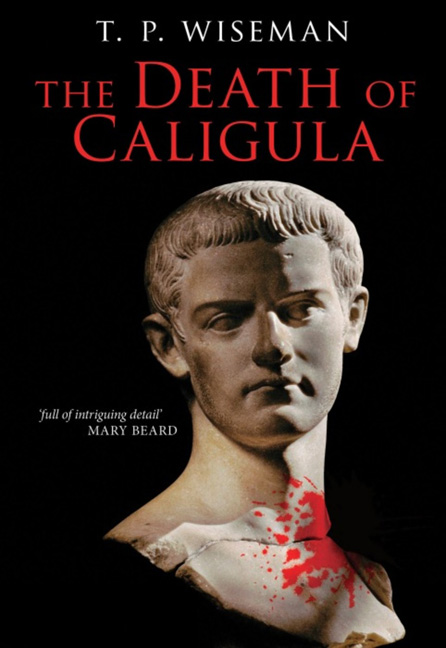Book contents
- Frontmatter
- Content
- Illustrations
- Acknowledgements
- Dedication
- Introduction
- Abbreviations and Select Bibliography
- Flavius Josephus, Antiquitates Iudaicae xix 1–273
- I Preface
- II The Conspiracy
- III The Assassination
- IV Panic on the Palatine
- V The Republic Restored
- VI Obituary
- VII The Claudius Coup
- Note on the Text
- Commentary
- Appendices:
- Index of Names
V - The Republic Restored
from Flavius Josephus, Antiquitates Iudaicae xix 1–273
- Frontmatter
- Content
- Illustrations
- Acknowledgements
- Dedication
- Introduction
- Abbreviations and Select Bibliography
- Flavius Josephus, Antiquitates Iudaicae xix 1–273
- I Preface
- II The Conspiracy
- III The Assassination
- IV Panic on the Palatine
- V The Republic Restored
- VI Obituary
- VII The Claudius Coup
- Note on the Text
- Commentary
- Appendices:
- Index of Names
Summary
158 In the meantime, the Senate was in session and the people were assembled in the Forum (the customary place). Their business was to discover the murderers of Gaius, but though the people went about it eagerly, the Senate made only a pretence.
159 Valerius Asiaticus, a man of consular rank, addressed the assembly. The people were in an uproar of indignation that the emperor's murderers were still not found. ‘Who did it?’ they all urgently demanded of him. ‘I wish I had,’ he replied.
160 The consuls too put out an edict containing accusations against Gaius. They ordered the people to go home, and the soldiers to return to their quarters. In return, they promised to the people hope of seeing their grievances alleviated, and to the soldiers hope of rewards, provided they kept their accustomed discipline and did not go out on the rampage. They were afraid of serious damage to the city if the soldiers ran wild and turned to looting, or to plundering the temples.
161 By now there had already assembled the full membership of the Senate. In particular, those who had joined the plot to kill Gaius were there, full of confidence and with a high opinion of themselves, as if the government depended on them alone.
162 It was while matters were at this stage that Claudius was suddenly kidnapped from the house. The soldiers had held a meeting, and argued among themselves about what should be done. They could see that a republic would never be able to keep control of so great a state, and if it did come into being it would not govern in their
163 interest. If on the other hand some individual should gain power it
164 would do them great harm not to have helped him to gain it. So the best thing was to choose an emperor themselves, while the situation was still fluid. Claudius was the man—he was the dead Gaius’ uncle, and more illustrious than any of those gathered in the Senate house, whether in the distinction of his ancestors or in his own devotion
165 to learning. Besides, if they made him emperor he would probably honour them for it and reward them with handouts.
- Type
- Chapter
- Information
- The Death of CaligulaFlavius Josephus, pp. 24 - 29Publisher: Liverpool University PressPrint publication year: 2013



